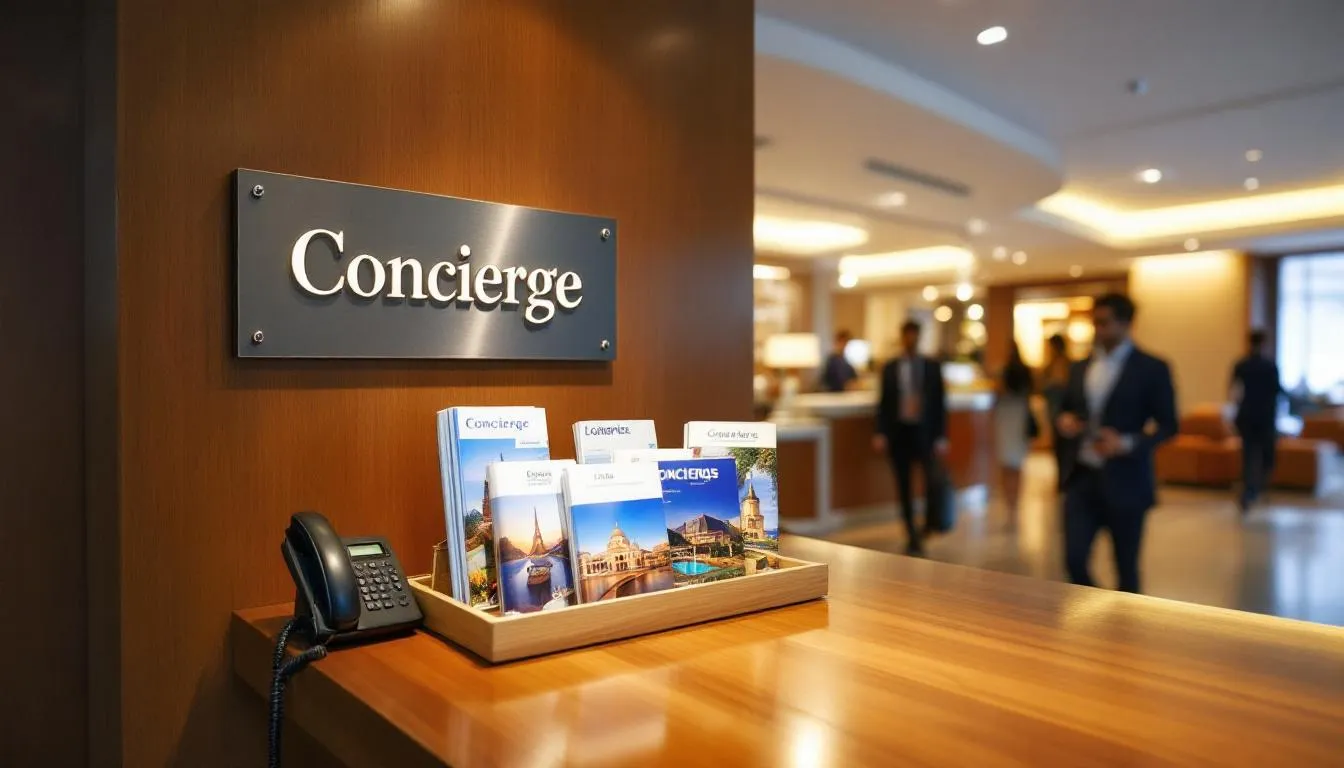SEO for Hotels: Complete Guide to Boost Direct Bookings & Rankings
 Mika Takahashi
Mika Takahashi Mika Takahashi
Mika TakahashiIf you’re a hotel owner, you’ve probably noticed how those OTA commissions—Booking.com, Expedia, and the like—can really chip away at your profits, sometimes taking 15-25% of your revenue. Sure, these platforms give you visibility, but wouldn’t it be great to keep more of what you earn? That’s where a smart SEO strategy for hotels comes in.
SEO for hotels isn’t just about climbing higher on Google’s search results. It’s about creating a sustainable, commission-free booking engine that puts you back in the driver’s seat when it comes to your distribution. Since over 75% of travelers begin their hotel search on search engines, mastering hotel SEO is no longer optional—it’s a must for hospitality businesses aiming to thrive in today’s competitive market.
In this detailed guide, we’ll cover everything you need to know about hotel SEO—from the basics of keyword research to the nitty-gritty of technical optimization. You’ll learn proven tactics that help hotels cut down on OTA dependency, boost direct bookings, and build a lasting organic presence that steadily grows your revenue.
Hotel SEO is the process of fine-tuning your hotel’s website and online presence so it ranks better in search engine results pages (SERPs), bringing in more direct bookings without the hefty OTA fees. Unlike general SEO that casts a wide net, hotel SEO zeroes in on travelers who are ready to book, all while competing against big-budget OTAs for prime search spots.

Search engine optimisation for hotels breaks down into four key areas that work hand-in-hand to boost your online visibility:
What sets hotel SEO apart from other industries is the intense competition—not just with other hotels, but with massive OTAs that pour big budgets into SEO. Still, hotels have a unique edge: deep local knowledge, authentic guest experiences, and the ability to create highly specific, location-based content that OTAs simply can’t replicate.
Let’s talk numbers. About 75% of travelers kick off their hotel research on Google, often using location-specific searches. The payoff? The top organic search result grabs nearly a third of all clicks (31.7%), with the next two spots pulling in 24.7% and 18.7%. By the time you hit the tenth spot on page one, you’re looking at just 2.2% of clicks. That drop-off makes it crystal clear: first-page rankings are vital.
Beyond just more traffic, effective hotel SEO can seriously boost your bottom line. When guests book directly, you avoid those 15-25% OTA commissions. Imagine a 100-room hotel with an average rate of $200; cutting OTA bookings by 20% could mean hundreds of thousands more dollars in your pocket each year.
OTAs have the advantage of massive SEO budgets and sophisticated strategies, but they can’t offer the authentic, localized content travelers crave. Your hotel’s SEO can fill that gap by highlighting your unique location, local partnerships, and insider knowledge—things no generic booking platform can match.
Plus, organic search rankings build over time. While OTA advertising costs keep climbing, your organic traffic becomes a valuable, lasting asset. Hotels that secure strong search rankings often hold them for years, gaining a sustainable edge as acquisition costs rise elsewhere.
Keyword research is the backbone of any good hotel SEO marketing plan. Unlike some industries where search intent is murky, hotel-related searches usually fall into four clear buckets, each needing a different approach:

The trick is balancing broad, high-volume keywords with long-tail phrases that capture specific traveler needs. Generic terms like “hotels in New York” get tons of searches but face fierce competition from OTAs and big chains. More niche keywords like “boutique hotel near Central Park with dog-friendly rooms” might have fewer searches but attract highly qualified visitors ready to book.
Tools like Google Keyword Planner, SEMrush, and Ahrefs are great for digging into keyword volume and competition. Don’t forget to check Google’s autocomplete and “People also ask” sections—they reveal real questions travelers have about your area.
Map your keywords thoughtfully: your homepage targets broad location terms, room pages focus on specific amenities, and blog posts capture long-tail, informational queries that show off your local expertise.
The best hotel SEO keywords often mix location with traveler intent: “family-friendly hotel with pool near Disney World,” “pet-friendly boutique hotel downtown Portland,” or “business hotel with meeting rooms near airport.” These attract visitors who know what they want and are more likely to book directly.
On-page SEO for hotels is all about striking the right balance between what search engines want and what your guests need. Every page should clearly communicate info to both audiences, weaving in relevant keywords naturally.
Meta titles and descriptions are your hotel’s first impression in search results. Your homepage title might read: “The Boutique Hotel Manhattan | Luxury Accommodations Near Central Park.” Keep it under 60 characters so it displays fully.
Meta descriptions should highlight what makes your hotel special and include your target keywords. Instead of bland text, try something like: “Experience luxury hospitality in the heart of Manhattan. Our boutique hotel offers personalized service, modern amenities, and unbeatable access to Central Park. Book direct for best rates.”
Headers organize your content and help search engines understand your page. Use one H1 per page—your homepage could say “Luxury Boutique Hotel in Downtown Chicago,” while a room page might use “Deluxe King Suite with City Views.”
Room descriptions can be tricky since many hotels offer similar amenities. Avoid copy-pasting generic text that leads to duplicate content penalties. Instead, craft unique descriptions that highlight your room’s special features, like “Our corner suites boast floor-to-ceiling windows with panoramic harbor views, accented by locally-sourced artwork and custom furnishings inspired by maritime heritage.”
Don’t overlook image optimization. Use descriptive filenames like “deluxe-ocean-view-suite-balcony.jpg” and alt text that accurately describes the image while including keywords: “Spacious hotel room with ocean view balcony and modern furnishings.”
Internal linking helps search engines crawl your site and guides visitors through their booking journey. Link your homepage to key pages, connect related amenities, and make sure booking pages are easy to find.
Implementing schema markup can earn you rich snippets—those eye-catching bits in search results that show star ratings, prices, and amenities. Use LocalBusiness schema for your hotel info, Hotel schema for room details, and Review schema to highlight guest feedback.
Content is much more than just your property description. Thoughtful content creation can capture travelers at every stage of their journey and establish your hotel as a local expert—something search engines love.
Location-specific landing pages are a powerful way to capture geo-targeted traffic. If you’re near Lincoln Center, create pages like “Hotels Near Lincoln Center Opera House” or “Broadway Theater District Accommodations,” each optimized for those specific searches.
Blogs let you showcase local knowledge and target informational queries. Write about seasonal events, festivals, dining spots, shopping, and entertainment. Answer common traveler questions like “Best time to visit [your city],” “How to get from [airport] to downtown,” or “Family-friendly activities near [your hotel].”
Make sure your content is genuinely useful, not just thin marketing copy. Travelers appreciate insider tips on hidden gems, local customs, and seasonal happenings that enhance their stay.
Visual content is key in hospitality marketing. High-quality photos of rooms, amenities, and local attractions boost engagement and SEO. Properly name image files and add alt text. Virtual tours and videos can increase the time visitors spend on your site, sending positive signals to search engines.

Keep your content fresh with regular updates. Maintain an editorial calendar featuring seasonal attractions, local events, and hotel news. Fresh content encourages return visits and can attract backlinks from local bloggers and media.
User-generated content is another goldmine. Encourage guests to leave reviews, share social media posts, or contribute to guest blogs. Authentic guest perspectives perform well in search and build trust.
Always align your content with search intent. Informational posts should educate, commercial content can include subtle calls-to-action, and transactional pages focus on booking. The best hotel content blends helpful info with business goals seamlessly.
Local SEO is the heart of hotel search optimization—after all, most hotel searches have a geographic angle.
Your Google Business Profile is the cornerstone here. Fill out every detail accurately—address, phone, website, hours—and upload high-quality photos of your rooms, amenities, and local attractions. Use the Posts feature to share special offers, events, or seasonal deals, boosting engagement and freshness.
Reviews play a huge role in local rankings and guest decisions. Google looks at both the number and quality of reviews. Respond to all reviews professionally, showing you care. Set up systems to encourage happy guests to share their experiences online.
Local citations—mentions of your hotel’s name, address, and phone number on other sites—help build authority. Make sure your NAP info is consistent across travel directories, tourism sites, and business listings. Inconsistencies can confuse search engines and hurt rankings.
Create location-based pages targeting searches like “hotels near [landmark].” Offer real value with directions, transit info, and insider tips.
Keep your Google Maps presence sharp. Encourage guest check-ins, answer questions in your profile, and keep info accurate across Google services.
Keep an eye on your competitors’ local SEO tactics. Tools like BrightLocal or Whitespark can help you track rankings and find citation opportunities.
Technical SEO lays the groundwork for everything else. Hotel sites face unique challenges with booking engines, real-time availability, and inventory syncing.
Site speed matters big time. Google factors it into rankings, and slow pages kill conversions. Aim for load times under 2 seconds. Compress images, use browser caching, CDNs, and minimize plugins.
Mobile optimization is critical since most hotel searches happen on phones. Google’s mobile-first indexing means your mobile site quality affects your rankings. Make sure booking flows are smooth on small screens, with easy taps and readable text.
HTTPS is a must. Secure your site with SSL certificates to protect guest data and boost SEO.
XML sitemaps help search engines find and index your pages efficiently. Create separate sitemaps for rooms, amenities, location pages, and blog posts. Submit them via Google Search Console and watch for crawl errors.
Structured data markup can earn rich snippets that boost click-through rates. Use Hotel schema for room details and prices, LocalBusiness schema for your address, and Review schema to highlight guest feedback.
Core Web Vitals measure user experience—loading speed, interactivity, and visual stability. Track these in Google Search Console and fix issues promptly.
Duplicate content is a common hotel pitfall, especially with similar room types. Use canonical tags, write unique descriptions, and avoid copying OTA content. Duplicate content can tank your rankings.
Off-page SEO is about building your hotel’s authority and trust online through links and mentions.
Reach out to travel bloggers who cover your area. Build genuine relationships by engaging with their content before pitching collaborations. Offer exclusive experiences or local insights that add value.
Partner with local tourism boards, chambers of commerce, and attractions. These relationships often lead to natural backlinks from event listings and visitor guides.
Create linkable assets—unique content that others naturally want to reference. Think in-depth local guides, historical stories, or unique amenities.
Guest posting on hospitality sites can boost authority and reach. Focus on valuable, informative content rather than overt promotion.

Manage your online reputation actively. Monitor mentions on social media, review sites, and forums. Respond professionally and look for influencer opportunities.
Analyze competitor backlinks with tools like Ahrefs or SEMrush. Spot missed link opportunities and relevant publications.
Press coverage can generate high-authority links and brand awareness. Pitch newsworthy stories about your hotel’s sustainability, community work, or unique features.
Submit your hotel to reputable travel directories and local business associations. Avoid low-quality directories that might hurt your SEO.
With voice assistants like Siri and Alexa changing search habits, optimizing for voice search is increasingly important.
Voice queries are conversational and often local: “find hotels near me tonight” or “best family hotel in downtown Portland.” Use FAQ sections and natural language that mirrors how people speak.
Featured snippets are prime real estate for voice search since assistants often read these aloud. Structure content with clear, concise answers and numbered lists.
Local voice search means your Google Business Profile must be complete and optimized for “near me” searches. Create content answering location-specific questions about your hotel and neighborhood.
Mobile booking goes beyond responsive design. Simplify booking forms, reduce required fields, and ensure fast load times on mobile networks. Features like one-click booking or social logins can boost conversions.
Location-based mobile features like click-to-call and GPS coordinates improve user experience and search visibility.
Tracking your SEO efforts is key to understanding what’s working.
Google Analytics shows how organic search traffic behaves. Set up goals for bookings, newsletter signups, and other conversions. Watch traffic trends, engagement, and conversion paths.
Google Search Console gives insights into search performance, keyword rankings, click-through rates, and index status. Use it to spot improvement areas and track keyword progress.
Monitor keyword rankings with tools like SEMrush, Ahrefs, or Screaming Frog. Track your primary keywords, local terms, and branded searches.
Conversion tracking for direct bookings is critical. Measure revenue from organic traffic, compare conversion rates across channels, and calculate the lifetime value of SEO-acquired guests.
Regular SEO audits catch technical issues before they hurt performance. Use Screaming Frog to find broken links, duplicate content, and errors. Monitor site speed, mobile usability, and Core Web Vitals.
Competitive analysis helps you see how you stack up. Track competitor rankings, content strategies, and find gaps you can fill.
Calculate ROI by comparing SEO costs with incremental direct booking revenue. Track organic traffic growth, conversion improvements, and reduced OTA reliance.
Monthly reports should highlight key metrics like organic traffic, direct bookings, keyword rankings, and competitive position. Present data in business context to show SEO’s impact on revenue.
Starting with proper tracking lets you dive deeper over time. Segment traffic, users, and conversions to pinpoint which SEO tactics deliver the best returns.
The best hotel SEO strategies mix on-page, off-page, local, and technical SEO with ongoing measurement and adjustment. Stay patient and persistent—building a strong organic presence takes time but pays off with higher direct bookings, better margins, and more control over your distribution.
SEO for hotels is a long game, but it’s one of the smartest investments you can make in your hotel digital marketing. Start applying these strategies today, track your progress, and watch your hotel’s online visibility—and bookings—grow steadily over time.